Mention the Pope and people immediately think of Rome. Or perhaps of Vatican City. But the Popes of Avignon, France? For me, at least, it was a surprise to learn that this city in Provence, France, was the seat of the Papacy for more than 70 years during the 14th century.
As with most political situations, the “great controversy of the anti-popes” was ignited by money and ego. By the end of the 13th century, the Crusades had seized an immense amount of wealth and property in the name of the church. With such resources and armies at their command, the Popes decided that the church should dictate secular as well as spiritual matters. Drunk with power, in November of 1302, Pope Boniface VIII issued a papal bull that decreed, “it is necessary to salvation that every human creature be subject to the Roman pontiff.” He subsequently excommunicated the king of France and dismissed the entire clergy of France.
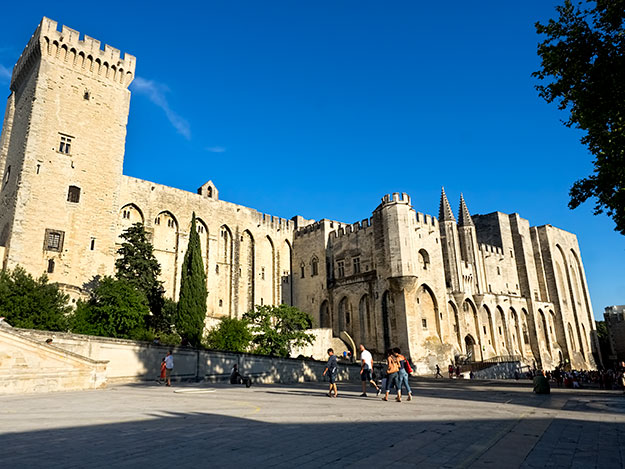
Boniface likely thought he could succeed in such a power play because the position of Holy Roman Emperor had been vacant since the death of Frederick II in 1250. However the King of France, Philip IV, was having none of it. In 1303, he sent a delegation to Rome, providing them with orders to bring Pope Boniface VIII to France, by force if necessary. The delegation arrested the 68-year old Pope in his home town of Anagni, Italy. Town residents freed him three days later, however the shock was too much for the elderly Pope. He died a few weeks later.
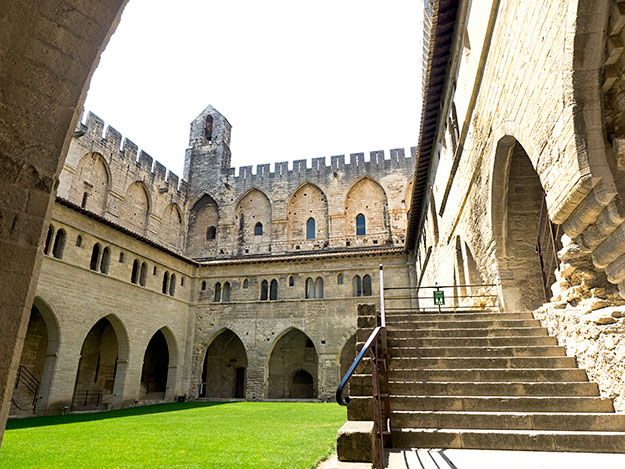
Following the one-year papacy of Benedict XI, in 1305 the conclave selected Clement V, the Archbishop of Bordeaux, as the next Pope. In a break with tradition he refused to go to Rome for his coronation, choosing instead to have the ceremony in Lyon, France. He immediately rescinded all charges against the French King and within a year had ordered the arrest of all members of the Knights Templar. In a final move to reestablish the supremacy of the crown, he moved the entire papal court to the city of Avignon. Clement insisted the move was necessary for the safety of the court. With unrest rampant in Rome, Roman aristocrats had begun to assemble and finance armed militia.
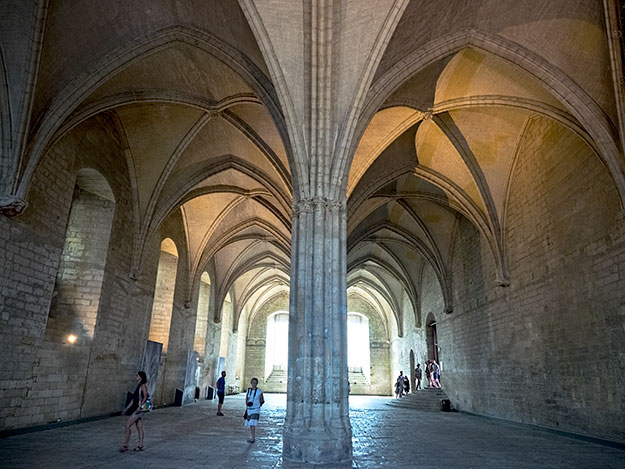
It soon became apparent that unrest in Rome had been just a convenient excuse. Pope John XXII, who succeeded Clement V, also remained in Avignon. The next two popes, Benedict XII and Clement VI, constructed a palace for the papal court. In all, the papacy remained in Avignon for more than 70 years, until Pope Gregory XI decided to return to Rome in 1376. Things might have ended peacefully at that point if Gregory XI had not died unexpectedly. When the conclave elected an Italian pope, Urban VI, the French cardinals felt betrayed. They responded by electing a pope of their own, Robert of Geneva, who took the name Clement VII and remained in Avignon.
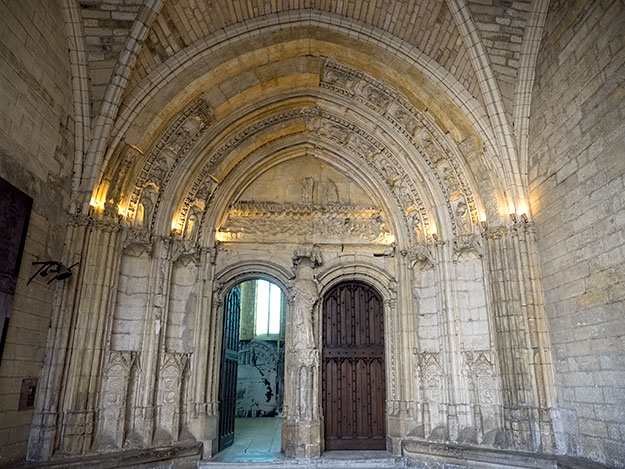
For the next 40 years, the Popes of Avignon, though shunned and unrecognized by the Church, continued to be appointed. The question of which line of popes was legitimate was finally resolved by the ecumenical Council of Constance, which invalidated the French conclave of 1378. As a result, the five anti-popes of Avignon that served from 1378 to 1437 were simply wiped off church records, as if they had never existed.
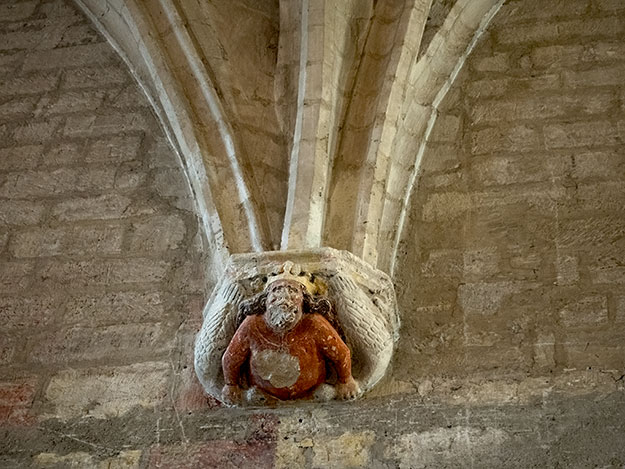
I learned all this during a fascinating tour of the Palace of the Popes in Avignon, which is still the largest Gothic palace in all of Europe. Today its cavernous halls are empty, but here and there I saw evidence of its glorious past: the Gothic entrance to the Grand Chapelle, the magnificent cloister, and the fanciful sculptures on the arches of the Grand Audience.
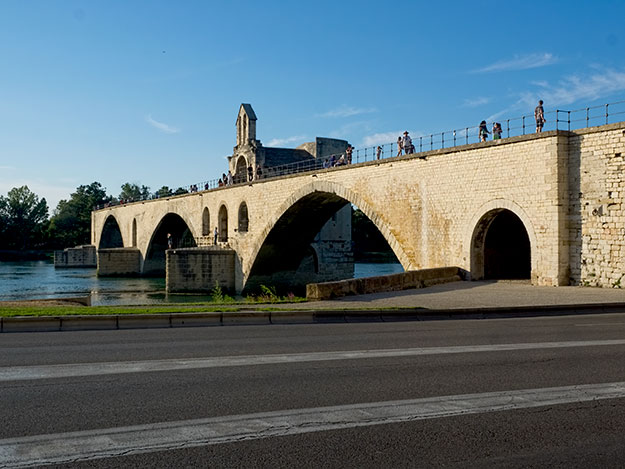
Fittingly, at the end of my tour I walked out on Pont St. Benezet. Built in the 12th century, this stone bridge over the Rhône River was crucial to the trade and commerce of the region, and thus to the Popes of Avignon. Today only four of its original 22 arches remain. Repeatedly swept away by flooding, the bridge was finally abandoned in the 17th century. The bridge dead-ends in mid-river, a footnote to history, just like the anti-popes of Avignon.

Hi Barbara, I’ve just discovered your blog, it’s absolutely fantastic! I can’t wait to read more of it, especially your travels in the Balkans.
I just wanted to add that Avignon and its bridge are particularly famous for French parents and toddlers: they’re the theme of a well-liked nursery rhyme. Here is a link to the song https://www.youtube.com/watch?v=uJKfxtYAt0s 🙂
Hi Lucille: Thank you SO much. It gives me a thrill to get comments like yours – makes me feel I’m doing something worthwhile and keeps me writing. And I appreciate the additional information about Avignon and the link to the nursery rhyme.
Barbara Weibel church has always been under the control of kings posing as their most loyal servant. Tales of its independence and power are forgeries peddled with the help of penny bought mainstream academia.
Great summary of the french Papacy. Well done
Thank you so much H. Crespo. I thought it was a fascinating story – glad you did too.